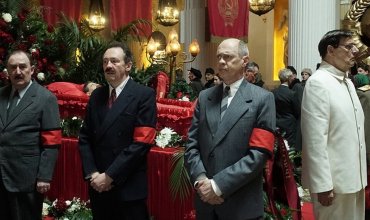KILL THE MESSENGER is a feature film based on the investigative journalism of the late Gary Webb. The facts, although disputed by some, are on record. This review will mention some of these in the following paragraphs, so if you want to see this film untainted by historical information, then you’d best walk away from your screen now. Take with you the thought that this movie is aimed at an audience that is savvy with recent history and is interested in complex political tales. Spoiler Alert: I will give the movie a rating of 4/5 in the final paragraph of this review.
It is 1996 and Pulitzer Prize winning journalist Gary Webb, picks up the scent of a story. It starts with the arrest of a small-time drug dealer Ronald Quail (Robert Patrick) and then leads up the chain to a Nicaraguan informant called Danilo Blandon. Webb discovers that Blandon has been selling cocaine and arms to Los Angeles gangs, yet he also appears to have protected status with the CIA.
Webb investigates further and eventually uncovers a much larger story. In Nicaragua, the leftist Sandinista government is opposed by counter-revolutionary forces known as the Contras. The Contras are funded and trained by the US Government through the CIA. Webb’s investigation contends that the Contras sell crack cocaine in the United States and the profits from this trade are being channeled back to the anti-government resistance in Nicaragua. Furthermore, the CIA is aware of the trade and, at the very least, is turning a blind eye.
Webb’s exposé is published by the San Jose Mercury News and the results are explosive. In Los Angeles, some black leaders take the story as proof that the government is sponsoring the crack-cocaine epidemic in the African-American community. There are those on other newspapers who question the thoroughness of the journalism. There seem to be powerful interests who care about proving Webb wrong. Is the US government working to make Webb seem less credible?
His story happened almost twenty years ago, but it is relevant to our own time. People like Assange, Manning and Snowden are reviled or celebrated by different sections of the public. Are these whistle blowers preventing government over-reach by revealing the secretive actions of the NSA, CIA and the military? Or are they breaching national security? In the case of Gary Webb’s investigation it seemed as though the War on Drugs and the fight against left-wing governments in South America was producing civilian casualties back home in the USA. When that story reached the light of day Webb’s life changed drastically.
Jeremy Renner is one of the producers, as well as the star of KILL THE MESSENGER and claims no particular political bent or interest other than re-telling the tale of Gary Webb. It is literally the story of a story. Renner plays the lead role with his trademark intensity. His Webb is a terrier of a man with tremendous energy, passion and a good dose of righteousness. Webb crusading for the truth is similar in flavour to the portrayal of The Washington Post’s Woodward and Bernstein in Alan J. Pakula’s ALL THE PRESIDENT’S MEN (1976); the movies share some DNA in their take on American investigative journalism.
I found KILL THE MESSENGER a solidly entertaining movie that was persuasively messy and life-like with its loose-ends. The film is in Australia in limited release. It runs for 112 minutes. My rating is 8/10.


